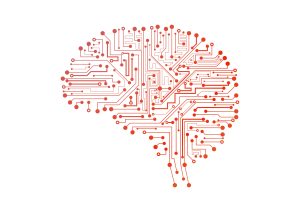- eco survey shows: Many young people already use ChatGPT and Co.
- 58.7 percent of students, but only 7.4 percent of all Germans already use chatbots like ChatGPT privately
- Growth expected: AI language models are highly relevant for the German economy
- A competitive AI location in Germany needs a robust computing infrastructure
- eco chair Oliver Süme warns against slowing down AI innovations through overregulation
Artificial intelligence has taken another leap forward with the ChatGPT language model from the Californian company Open AI, which was launched in November 2022. Users can deliver questions or tasks on the Internet – and receive answers in the form of texts that appear as if a person had written them. Compared to earlier AI chat programmes, this is a big step forward. The technology could revolutionise school and education, but also the world of work, and they are particularly popular among the younger generation. For example, 58.7 percent of students say they use chatbots like ChatGPT. Among the German population, however, chatbots still play a rather small role. 7.5 percent of Germans use them in a private context, 2.4 percent in a professional context. 20 percent of those surveyed said they had not yet heard of the new technology. These are the results of a representative survey of around 2,500 people in Germany* conducted by the opinion research company Civey on behalf of eco – Association of the Internet Industry.
Growth expected: AI language models are highly relevant for the German economy
However, experts expect strong growth, especially in professional use. Intelligent voice assistants can support customer service, for example, and analyse large amounts of data in real time and recognise patterns that human analysts might miss. This enables companies to make faster decisions and adapt strategies. The AI project Service-Meister, for example, led by the eco Association, is developing a smart ecosystem for technical service in the age of Industry 4.0 that will relieve and support service technicians.
The relevance of AI chatbots and the language models behind them for the economy is very high, also states the feasibility study “Large AI Models for Germany” by the KI Bundesverband e.V., in which the eco Association is also involved as a co-author. In Germany and Europe, too, more and more companies want to enter the market with new and intelligent AI applications. But the necessary open-source models, training data and sufficient computing infrastructures are lacking in this country. The authors therefore warn that Germany is in danger of becoming dependent on American AI models such as ChatGPT. Since 2017, 73 percent of AI foundation models have come from the US and 15 percent from China, the study shows. In the US, development is mainly driven by the big tech companies with billions invested. For digital sovereignty in artificial intelligence, research must be conducted in Germany at an international level, data must be collected and refined in order to train large models and to make them openly available for application in the economy. This is the goal of the Large European AI Models initiative, or LEAM for short.
A competitive AI location in Germany needs a powerful computing infrastructure
Germany must therefore work intensively on building a competitive AI ecosystem, demands eco chair Oliver Süme. This also includes high-performance digital infrastructures such as data centers, which are currently facing increasingly difficult location conditions in Germany, for example due to high electricity costs and planned energy efficiency requirements. With regard to the current negotiations on the planned AI regulation, the Artificial Intelligence Act (AI Act) in the EU Parliament, Süme demands: “Instead of slowing down innovations through overregulation, we should now move forward with openness and a willingness to experiment on the part of both the Internet industry and the user industries. In order to survive in international competition, we must implement AI in our key sectors of the economy. Only in this way will we benefit from this use of technology as quickly as possible and generate new business models through our experiences from this.”
Incidentally, the LEAM feasibility study also shows: AI will not replace humans in the short or long term, but rather support them in their tasks. AI is, therefore, a tool that we must learn to use.



